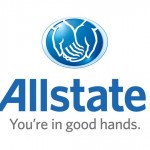Thousands of poor Kansans would get the state’s help in paying for health insurance under a proposal endorsed earlier this week in both the House and Senate, as legislators moved closer to finishing a modest package of health care initiatives.
The proposal would create a new program eventually providing $77 million a year in benefits to about 24,000 adults by 2012. While the program’s details aren’t spelled out, supporters expect the state to spend about $3,200 per person.
The House approved, 117-5, a bill creating the new program. The Senate gave its own bill first-round approval on a voice vote and planned to take final action Tuesday. Both measures had bipartisan support.
The House bill tied the new program to proposals to allow the state to make no-interest loans to help small businesses form associations and start health plans, and allow more Kansans to set aside money tax-free to cover health expenses. It also sets up a study for a possible overhaul of the Medicaid program serving needy Kansans.
“It’s really a down payment on bigger, broader health reform for next year,” said Marcia Nielsen, executive director of the Kansas Health Policy Authority, created by legislators in 2005 to study health issues and administer some state programs.
In January, the governor called on legislators to draft a plan to eventually bring universal health coverage to Kansas, but many Republicans have resisted, worrying about extending state government’s reach.
The debates in both chambers occurred on lawmakers’ 81st day in session and three days after Democratic Gov. Kathleen Sebelius said the GOP-controlled Legislature hadn’t made enough progress on health care. The session is scheduled to last 90 days.
“I am pleased that the House today, in an overwhelming majority, joined the Senate in taking a step toward providing more Kansans with affordable health care,” Sebelius said in a statement.
In the House, some Republicans wanted to overhaul Medicaid by converting it from a program that pays health care providers serving the needy into a program that helps needy Kansans buy insurance. They drafted a 62-page health care plan.
But Sebelius has questioned whether it’s realistic to think Kansans now on Medicaid will be successful in finding or negotiating for affordable insurance. Other critics believed the House GOP plan had serious flaws, and Nielsen called it “a mess.”
The objections led to more discussions, and House Republicans backed away from parts of their plan, amending their bill heavily before passing it Monday.
“This is the product of a lot of discussions,” said Rep. Jeff Colyer, R-Overland Park, a physician who led a GOP task force on health care. “We do have the real foundations of health care reform.”
Because the Senate bill was narrower in scope, senators focused more on the proposal to help poor Kansans buy insurance. Some questioned creating a new program, suggesting it pours new dollars into a flawed health care system without controlling rising health care costs.
“Where’s the reform?” said Sen. Chris Steineger, D-Kansas City. “What in this plan really changes the way we spend our money?”
Backers described the new program as a small but significant early step in the debate over health care.
“What we are trying to do here, really, is lay a foundation for future reform,” said Sen. Laura Kelly, D-Topeka.
The $1.3 billion Medicaid program, administered jointly by the state and federal government, reimburses doctors, hospitals, clinics and others for services they provide to poor families.
Adults qualify for the program if their household incomes are at or below 37 percent of the federal poverty level _ $3,778 a year for someone who is single and $7,641 for a family of four.
Under both bills, the state’s help with buying insurance would start in 2009 and go to about 8,500 Kansans whose incomes are half or less of the federal poverty level. That’s $5,105 for someone who is single and $10,325 for a family of four.
By 2012, aid would go to Kansans whose incomes are at or below the poverty level, $10,210 for someone who is single and $20,650 for a family of four.
Kansans could purchase their own policies or join a plan offered by their employers. Senators noted some Kansans who are offered health insurance by their employers don’t take it because they can’t afford their share.
Topics Kansas
Was this article valuable?
Here are more articles you may enjoy.


 Jury Awards $80M to 3 Former Zurich NA Employees for Wrongful Termination
Jury Awards $80M to 3 Former Zurich NA Employees for Wrongful Termination  Investment Funds File New Suits Over Lighthouse Insurance Collapse in 2022
Investment Funds File New Suits Over Lighthouse Insurance Collapse in 2022  Allstate Reports $731M in Q1 Pretax Catastrophe Losses
Allstate Reports $731M in Q1 Pretax Catastrophe Losses  4,800 Claims Handled by Unlicensed Adjusters in Florida After Irma, Lawsuit Says
4,800 Claims Handled by Unlicensed Adjusters in Florida After Irma, Lawsuit Says 

